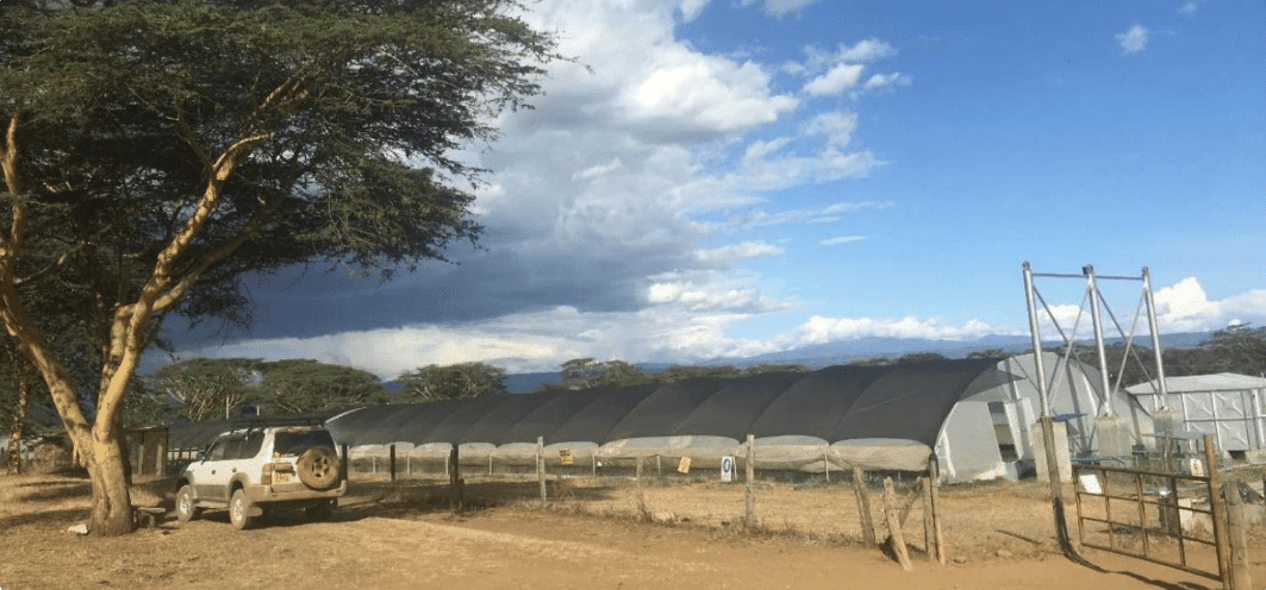DryGro, a UK-based startup growing a high-protein variety of duckweed called Lenma, has closed its first tranche of Series A investment worth £1.4m, the company disclosed to AFN on Thursday just after the FoodBytes! by Rabobank event in London. The CEO Sean Peters was pitching at the business competition. (Look out for our announcement of the winners tomorrow morning!)
A European family office led the round, which requested anonymity, with investment advisors Fonte Capital and EthicalFin both helping to bring in the latest tranche.
Founded at Oxford University in 2015, DryGro launched its first pilot farm in Naivasha, Kenya in 2018. The company has been operating and developing a proprietary controlled-environment system there which uses 99% less water than conventional agriculture, the management claims. The aim is to grow animal feed protein that can potentially substitute soybean meal in animal feed. What sets Lemna apart, the team say, is how it bears a similar amino acid profile and crude protein content to soybean meal.
In DryGro’s production system, Lemna doubles its biomass approximately every two days, according to Dry Gro COO Kate Jarvis. This enables DryGro to produce animal feed protein eight times faster than traditional soy, she says.
At a glance, “DryGro’s system is a long, shallow pond, enclosed in a polythene tunnel,” Jarvis told AFN. “The advantage of this approach is that production is not vulnerable to outdoor weather conditions, and it can be operated in most locations that have lots of sunlight and inexpensive land.”
Building out from its Kenyan pilot, Jarvis added, “DryGro plans to develop a network of industrial-scale facilities that enable the production of Lemna at prices that can compete with soybean meal.”
Globally, production of soy is already at an all-time high; demand is anticipated to increase further in the years ahead. This increase will require more land for soy cultivation, contributing to global deforestation. DryGro hopes its market offering will mitigate this challenge, allowing for local, consistent, high-quality production in countries that currently rely on imports of soybean meal, potentially adding to the world’s total capacity to grow food.
In previous fundraising, DryGro received support from investors and advisors like Sustainable Ventures, aquaculture accelerator Hatch, Innovate UK, the European Institute of Innovation and Technology’s Climate-KIC programme, the European Commission’s Horizon 2020 initiative and the European Space Agency (ESA).
One giant leap for Lemna
In its collaboration with ESA, DryGro captured data from IoT systems and Earth observation data that demonstrate how changes to the growing environment affect production over time. The team has used the findings to boost its Lemna growth rates and protein content.
With its latest tranche, DryGro intends to use the proceeds of the Series A investment to advance the development of its Lemna production facility in Kenya, part of its preparations for commercial-scale production of Lemna by 2021.
“This funding marks an important step towards DryGro’s contribution to global food security,” said DryGro CEO Sean Peters — “and particularly to food production that is resilient to climate change.”
On Thursday, the team announced it was opening its second tranche of its Series A through the crowdfunding platform seedrs.





